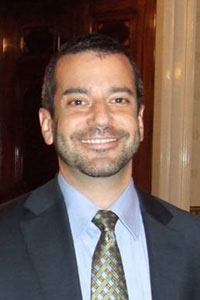 Once upon a time, after the campaign rallies were over, the ballots counted, the concession calls made, and the victory speeches given, the American campaign season ended. Politics remained a sport for those who chose to engage, but most of us happily moved on. Some actually took to the business of governing. Today, a multibillion-dollar election industry swings into motion before the confetti is swept away. It is an industry that thrives on year-round conflict. And the Jewish community is anything but immune from its reach.
Once upon a time, after the campaign rallies were over, the ballots counted, the concession calls made, and the victory speeches given, the American campaign season ended. Politics remained a sport for those who chose to engage, but most of us happily moved on. Some actually took to the business of governing. Today, a multibillion-dollar election industry swings into motion before the confetti is swept away. It is an industry that thrives on year-round conflict. And the Jewish community is anything but immune from its reach.
To see the evidence of this transformation, one has only to look at the surprising number of start-up Jewish organizations — advocacy groups, media outlets, and legal operations — that enter the communal arena with their politics on their sleeves. They come from the left and right and are joined by networks of activists. At face value, there is nothing wrong with this political activity. We enjoy a rich pluralistic tradition of argumentation and debate within the Jewish community. But while we thrive on this vocal pursuit, we are now witnessing the emergence of a new partisanship. It is bolstered by the belief, sometimes grounded in reality, but often clouded by fantasy, that every decision made, every speaker heard, every word of every resolution will have a profound impact on world events. And so large issues are acted out on small stages. Again, there is nothing wrong with this activity — until the hubris of a grand impact takes hold. Then, compromise slips out the door. As with political campaigns, there can only be winners and losers in this enterprise. The prize is never to be shared. Robust debate morphs into blood sport.
 What we lose as a result is enormous. Our capacity to debate, share, listen, and compromise is diminished; eventually, even our sense of klal Yisrael wanes. Rather than engaging in discourse that provokes new ways of thinking — and that may even change minds — we find ourselves in camps, with large blocks of Jewish voices that cannot comprehend how there could possibly be Jews who see important issues in a different way. Voices on either side, buoyed by confirming networks, isolated from earnest conversation across conflicts, enter the debate seeking a winner-take-all result. In the end, we all lose. To the outside world, it is just noise.
What we lose as a result is enormous. Our capacity to debate, share, listen, and compromise is diminished; eventually, even our sense of klal Yisrael wanes. Rather than engaging in discourse that provokes new ways of thinking — and that may even change minds — we find ourselves in camps, with large blocks of Jewish voices that cannot comprehend how there could possibly be Jews who see important issues in a different way. Voices on either side, buoyed by confirming networks, isolated from earnest conversation across conflicts, enter the debate seeking a winner-take-all result. In the end, we all lose. To the outside world, it is just noise.
The House of Hillel and the House of Shammai differed many times on fundamental questions of Jewish law — but they encountered one another, heard one another, and acknowledged the positions of the other. This was based on the declaration “Eilu v’eilu divrei Elokim hayim,” “These and those are the words of the living God.”
Imagine the transformation we could experience in our community if, rather than seeking uniformity and shutting out disparate voices, we truly honored the views of the minority alongside the majority. Imagine if we allowed compromise and consensus to govern rather than zero-sum solutions.
To do this, Jewish liberals must recognize that Jewish conservatives are not an anomaly. They are a sizable part of our community — perhaps one quarter and, on some issues, a clear majority. They care deeply about issues as well as the world around them. Jewish conservatives must similarly recognize that the liberal instinct of fellow Jews comes from their hearts as well as their heads. Neither should be reduced to blind allegiance or, worse, mere ignorance. That which is hateful to you, do not do to others.
A cherished lay leader once told me that he made it his business to sit next to the newest person at a board meeting and that he approached strangers at an Oneg Shabbat; he wanted everyone to feel part of the conversation and community. He didn’t pick out people who looked or voted like him; indeed, quite often it was the opposite. He didn’t trade any of his passion for debate, but when those debates occurred, he saw the humanity in others, and they in him.
After all, if we can act out conflict on small stages, why can’t we also act out reconciliation?









Leave a Reply